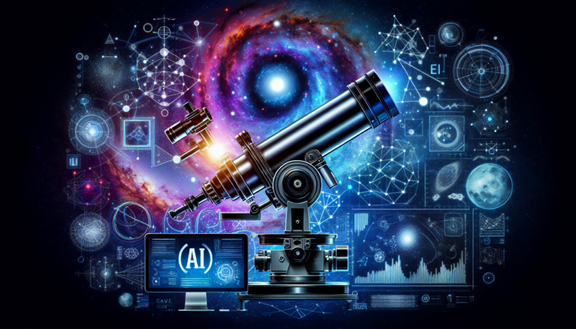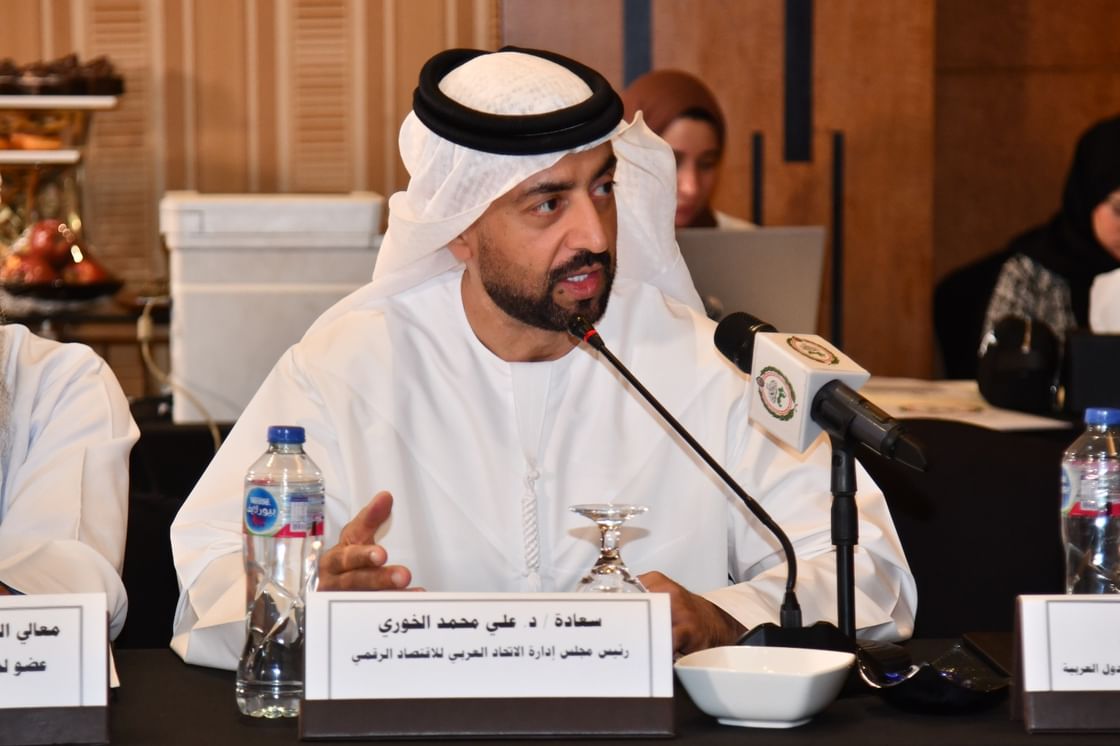Cairo
Source: Al-Wafd Newspaper
Prof. Dr. Ali Mohammed Al-Khouri
At a moment when the frontiers of knowledge intersect with technological capabilities, astronomy in the Arab world is witnessing an upward trajectory that goes beyond mere scientific or academic development, representing a strategic engagement in one of the most complex fields of human exploration: understanding the deep structure of the universe. This new resurgence, fueled by advanced artificial intelligence algorithms, not only reflects advances in observational and analytical tools, but also reveals a fundamental shift in cosmological methodology itself, as computational mathematics merges with major philosophical questions.
Today, astronomy has entered a new phase resembling what might be called the ‘second Copernican revolution,’ which refers to the qualitative transformation brought about by the first revolution, when Earth was removed from the center of the universe. Meanwhile, the current revolution, through artificial intelligence, is removing humans from the center of knowledge, replacing them with algorithms that discover the secrets of the universe at a pace that exceeds the capacity of the individual human mind.
Through artificial intelligence, astronomy is no longer a science based solely on observation, but rather a highly rapid inductive science, relying on discovering hidden patterns through billions of data streams from ground-based and space-based telescopes and observatories. This conceptual shift opens the door to an unprecedented reading of the universe, based not on what is seen with the naked eye, but on what is inferred by the mind, enhanced by intelligent computing.
In the Arab context, scientific ambition is no longer confined to classrooms or research papers. Rather, it has transformed into clear institutional policies, reflected in the establishment of advanced astronomical observatories, the expansion of education and research programs related to cosmology, and the opening of channels of cooperation with international research centers. This presence is measured not only by the number of projects or published articles, but also by what it represents in terms of restoring the historical role of the Arab mind, which, in luminous moments of the past, was one of the pillars of global scientific progress.
At global research centers such as the Center for Computational Astrophysics in New York, artificial intelligence has begun to calculate fundamental cosmological parameters, such as the age of the universe, the nature of dark matter, and the rate of expansion. These calculations, which previously required decades of observation and validation, are now performed in weeks thanks to deep machine learning systems. This has transformed astronomy from a reliance on intuitive theories to a reliance on large-scale quantum processing.

One of the most recent examples of this trend is a study presented at the 2023 National Astronomy Conference, in which researchers from Keele University in the UK used machine learning algorithms to analyze data from more than 6,000 stars, enabling them to link a star’s surface composition, particularly its lithium concentration, to its true age. This technique not only improves scientific accuracy but also changes the way we classify stars and their stages of evolution.
In April 2024, a team from Northwestern University, in collaboration with other research institutions, announced the development of an artificial intelligence system capable of restoring and enhancing astronomical images by up to 38%, compared to conventional techniques. This was not just a technical achievement, but a step toward overcoming the optical limitations of ground-based telescopes, providing astronomers with observing tools previously reserved for expensive space missions.
In the Arab world, universities and scientific institutions are moving toward integrating artificial intelligence into their research programs, whether in spectral data analysis, galaxy classification, or predicting rare cosmic phenomena. Some countries have begun to include courses that link astronomical computing and artificial intelligence within their university programs, indicating a shift from knowledge consumption to the production of models and algorithms.
What we observe today cannot be reduced to isolated technological developments, but rather represents a philosophical shift in the meaning of knowledge itself. Artificial intelligence, when harnessed to explore the heavens, not only produces scientific results, but also reshapes the relationship between the cosmic mind and the human mind. In this context, the efforts of Arab researchers acquire a civilizational dimension; on the one hand, they aim to catch up with the global trend, and on the other, they raise questions about the region’s cognitive role in producing a new vision of the universe.
Looking ahead, artificial intelligence is expected to become the primary driver of discoveries in the next decade. Through autonomous spacecraft and highly complex astronomical simulations, it will be possible to test cosmic hypotheses that were previously inaccessible to the telescope or the human mind alone. A new generation of scientists will emerge from this landscape, blurring the lines between theoretical physics, applied mathematics, and computational engineering.
Perhaps the most profound question raised by this accelerating progress is about the place of humanity in a universe whose mysteries are being solved by algorithms. Are we entering a phase in which the individual’s capacity for cosmic contemplation declines in favor of the power of predictive models? Or will artificial intelligence reshape the very meaning of contemplation, expanding our horizons to a horizon no longer confined to the human orbit?
Answering these questions is not the task of astronomers alone, but rather the task of society as a whole, which must decide to rise again to the orbits of higher knowledge, where imagination, reason, and analysis have equal place, producing a new vision of the universe…and of itself.










